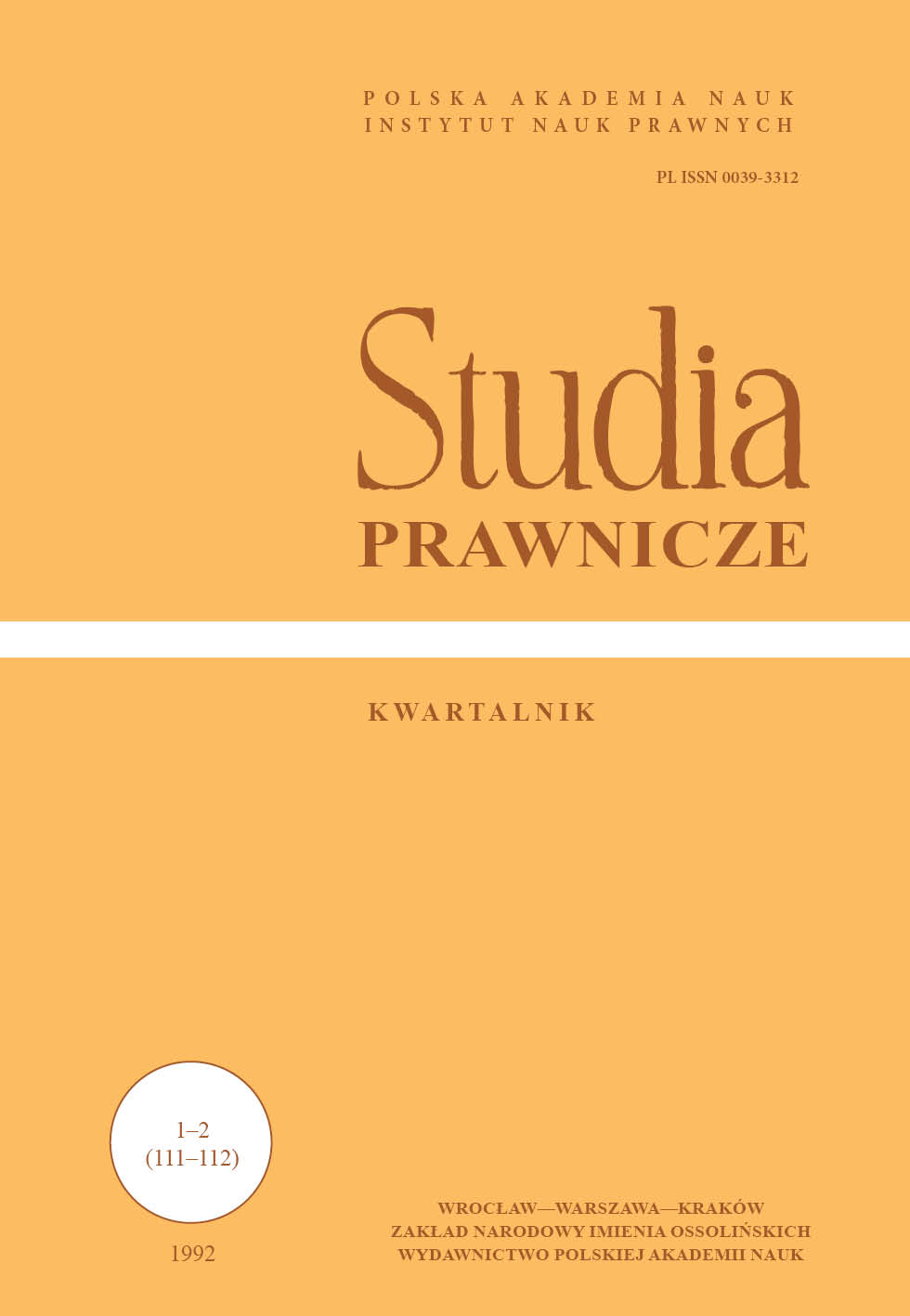Reforma procedury karnej a Europejska Konwencja o Ochronie Prawie Człowieka i Wolności Podstawowych
Reform of criminal procedure and the European Convention for the Protection of Human Rights and Fundamental Freedoms
Author(s): Piotr HofmańskiSubject(s): Law, Constitution, Jurisprudence
Published by: Instytut Nauk Prawnych PAN
Keywords: Convention for the Protection of Human Rights and Fundamental Freedoms; criminal proceeding; changes in law
Summary/Abstract: It may be doubted whether the strict position [included in the Schöneberg and Durmaz case, ref. 11368/85, in which the Court of Human Rights held that the violation of the correspondence secrecy between a barrister and a suspected detainee is a violation of the right to silence] is justified by the text of the Convention, which does not exclude the possibility of a certain restriction on the contact of a temporarily arrested person with his or her barrister and the freedom to exchange correspondence. It is a matter for consideration whether, in exceptional cases, i.e. where there is a well-founded fear of trickery, it would be appropriate to authorise the public prosecutor or, better, the court at his, her or its request to limit the time of visit of the barrister during which he or she may see the arrested person or to temporarily subject the correspondence of the arrested person to inspection during the preparatory proceedings. Obviously, respect for the right to remain silent would require that the accused be explicitly warned of this possibility. Reserving the presence of the prosecutor during a meeting between the arrested person and his or her barrister, on the other hand, appears to be an over-reaching restriction of the right to a defence.The spirit of Article 8(2) of the Convention undoubtedly implies the need to limit the admissibility of searches without a warrant from a court or prosecutor. However, this provision does not provide a basis for considering that exceptions to such a rule are impossible. However, it seems to be necessary in certain, truly urgent situations.
Journal: Studia Prawnicze
- Issue Year: 1992
- Issue No: 1-2
- Page Range: 73-96
- Page Count: 24
- Language: Polish

